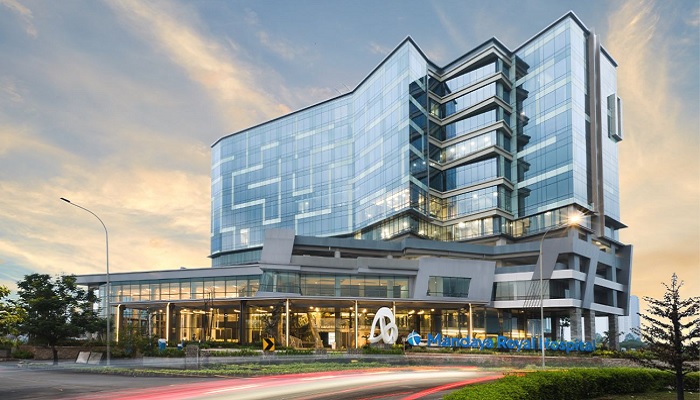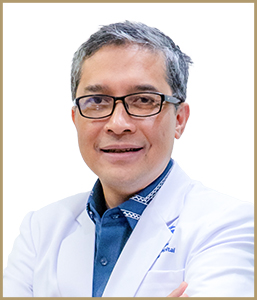A kidney stone diet can vary from person to person because there are different types of kidney stones, each influenced by different dietary factors.
The four most common types of kidney stones are calcium oxalate stones, calcium phosphate stones, uric acid stones, and cystine stones. Each type may require specific dietary adjustments. However, there are certain foods and drinks that are generally recommended—or avoided—by kidney stone patients.
Contents
Recommended Foods and Drinks for Kidney Stones
Here are some drinks and foods that are beneficial for kidney stones and can be included in your daily diet:
1. Water
When your body lacks water, the concentration in urine can lead to crystal formation. This is why staying well-hydrated is important. Adequate fluid intake is especially crucial for preventing cystine stones.
Drink at least 2.5 liters (about 10 glasses) of water per day to help prevent and dissolve kidney stones.
2. Citrus Fruits
Citrus fruits are a refreshing choice for kidney stone patients. They contain citric acid, which can help prevent and treat kidney stones. Citric acid works by neutralizing acid in the urine, dissolving uric acid crystals, and preventing the formation of calcium stones. Examples of citrus fruits include oranges, lemons, grapefruits, and limes.
3. Broccoli
Broccoli is a calcium-rich vegetable. While one type of kidney stone—calcium stones—can form from excessive calcium (often from supplements), a low-calcium diet can also increase the risk of stones, especially if you consume many high-oxalate foods.
Adequate dietary calcium binds to oxalates in the digestive tract, preventing them from crystallizing in the kidneys. It’s best to rely on calcium-rich foods like broccoli to meet your daily calcium needs without supplements.
4. Dairy Products
Milk and dairy products such as cheese are also rich in calcium and can be part of a kidney-stone-friendly diet. Calcium is important for bone and muscle health, as well as preventing kidney stones caused by excessive calcium from supplements.
5. Nuts and Seeds
Nuts and seeds can be beneficial for patients with uric acid stones. They can serve as an alternative to animal proteins like red meat, poultry, eggs, fish, and dairy, which may increase uric acid stone risk.
Good options include soybeans, almonds, sunflower seeds, and kidney beans.
Foods and Drinks to Avoid for Kidney Stones
In addition to recommended foods, there are certain items that should be limited or avoided:
-
Salt
Excessive sodium intake increases kidney stone risk because it can cause calcium buildup in the urine. Limit sodium to 2,300 mg per day (about one teaspoon of salt). Ideally, avoid adding extra salt to meals if you have kidney stones.
-
Meat
Animal proteins such as red meat, pork, chicken, poultry, and fish can raise uric acid levels and lower urinary citrate—a compound that helps prevent stones. Reduce your intake of animal proteins in a kidney stone diet.
-
Spinach
Spinach is high in oxalates, which can increase the risk of calcium oxalate stones. Limit or avoid spinach and other high-oxalate foods like chocolate, beets, peanuts, tea, and sweet potatoes if you have calcium oxalate stones.
-
Soda
Carbonated soft drinks are high in phosphates, another compound that can promote kidney stone formation. Avoid soda in a kidney stone-friendly diet.
For Our International Patients

Mandaya Royal Hospital Puri warmly welcomes international patients who are looking for reliable, high-quality medical care in Indonesia. With support from a dedicated team of experienced specialists and consultants who speak English fluently, we ensure clear communication at every step so that your consultation and treatment process is smooth and worry-free. Our commitment is to deliver a comfortable, fully supported, and seamless healthcare journey for every patient visiting from abroad—from the moment you arrive until your treatment is complete.
To enhance your experience, our English-speaking Patient Experience Officers (PEO) are available to assist you throughout your visit. They will help coordinate appointments, manage registration, and guide you through all hospital services. For added convenience, we provide airport or train station pickup services. If you need nearby accommodation, Mandaya Royal Hospital Puri offers an integrated hotel within the hospital complex, ensuring a practical, safe, and hassle-free stay during your treatment.
Expert Urology Team for Kidney Stone Treatment at Mandaya Royal Hospital Puri
Mandaya Royal Hospital Puri has a team of highly experienced urology specialists who are experts in kidney stone management:
1. Prof. dr. Ponco Birowo, Sp.U(K), Ph.D
A leading urology consultant in Indonesia, Prof. Ponco is renowned for his expertise in kidney stone treatment and other urological disorders. He earned his medical and urology degrees from the University of Indonesia, completed his Andro-Urology Consultant training, and obtained a Ph.D. from Hannover Medical School, Germany, graduating Magna Cum Laude in 2009.
In addition to his clinical practice, Prof. Ponco is a Professor at the University of Indonesia, making significant contributions to urology education and research.
Specialties:
- Kidney stones (including laser and PCNL methods)
- Bladder disorders
- Prostate enlargement or disorders
- Kidney abnormalities
Clinic Hours at Mandaya Royal Hospital Puri:
- Tuesday: 4:00 PM – 6:00 PM
- Thursday: 4:00 PM – 6:00 PM
2. dr. Hendy Mirza, Sp.U(K)

dr. Hendy Mirza is a urologist who graduated from the Faculty of Medicine, University of North Sumatra, and completed his urology specialty at the University of Indonesia. He further specialized through a fellowship in Pediatric Urology Reconstruction (Laparoscopy) at the same institution.
Expertise:
- Urinary tract surgery
- Prostate biopsy
- PCNL (Percutaneous Nephrolithotomy)
- TURP (Transurethral Resection of the Prostate)
Clinic Hours at Mandaya Royal Hospital Puri:
- Monday: 4:00 PM – 7:00 PM
- Wednesday: 4:00 PM – 7:00 PM
- Friday: 4:00 PM – 7:00 PM
3. dr. Maruto Harjanggi, BSc(Hons), Sp.U, FICS

dr. Maruto Harjanggi is a urologist who graduated from the University of Indonesia and holds a Bachelor of Science from the Faculty of Medical Sciences, Newcastle University, UK.
Expertise:
- Kidney stone surgery
- Prostate disorder management
- Vasectomy procedures
Clinic Hours at Mandaya Royal Hospital Puri:
-
Monday – Saturday: 9:00 AM – 1:00 PM
4. dr. Ima Nastiti Setyaningsih, Sp.U

dr. Ima Nastiti Setyaningsih is a female urologist at Mandaya Royal Hospital Puri. She completed her general medical degree and urology specialty at the University of Indonesia.
Expertise:
- Prostate biopsy
- PCNL procedures
- Laser treatment for prostate enlargement
- Urinary tract surgery
- TURP
- Other urinary tract surgeries
Clinic Hours at Mandaya Royal Hospital Puri:
- Tuesday: 2:00 PM – 4:00 PM
- Thursday: 2:00 PM – 4:00 PM
Experiences From Our Global Patients
To easily schedule a visit with our kidney stone specialists, use our WhatsApp Chat, Book Appointment feature, or download the Care Dokter app from Google Play or the App Store to check queue numbers, book appointments, and get complete information.




